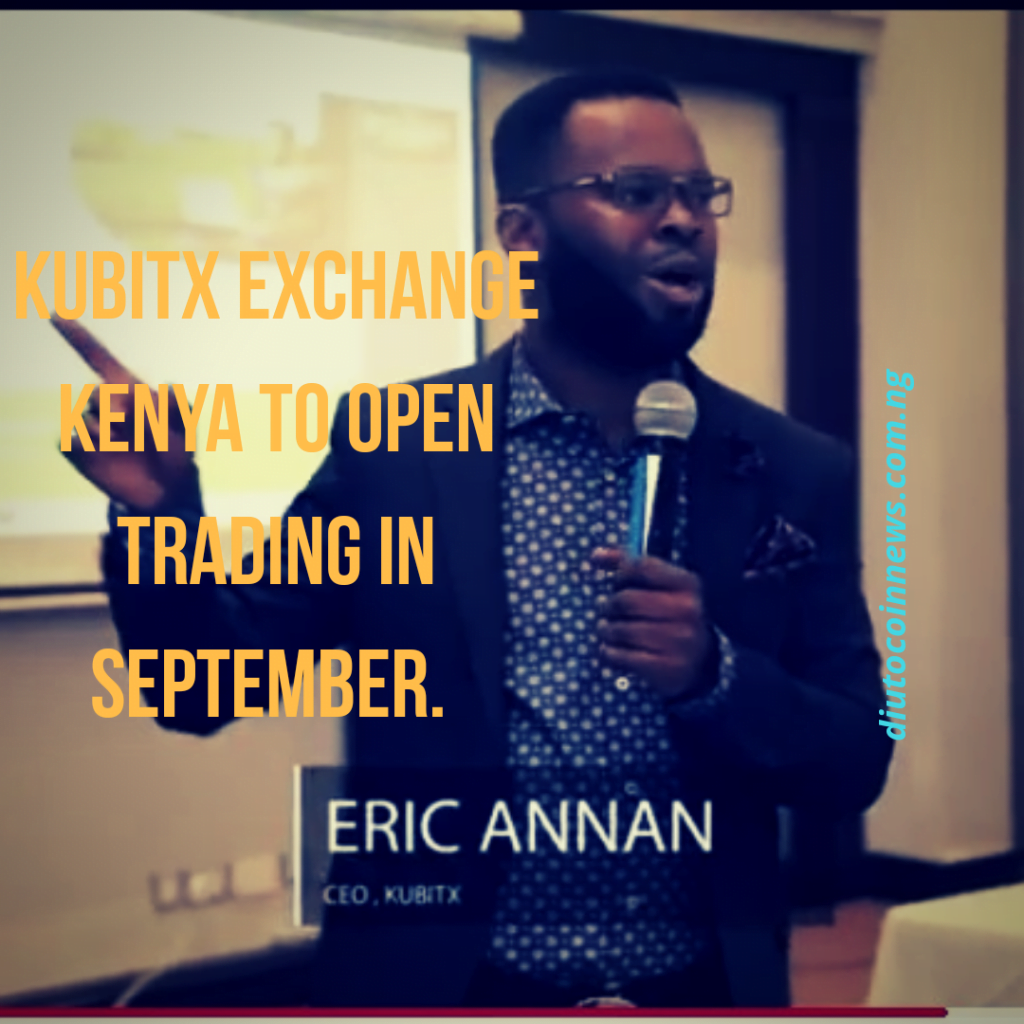Ponzi Schemes: Cryptocurrency Wallet Users Increase in Nigeria Following the Increase in Pyramid Schemes Like Million Money Investment.
World Bank Makes Further Investigations On Stablecoins and Central Bank Digital Currency.
Binance Loan Adds Support for BCH, LTC and XRP as Collateral.
Rumour: Reddit Community Point System to be Released on Ethereum Blockchain.
Binance Loan Launches With 20% Interest Discount For Borrowers.
Binance Loan: What is Binance Loan, How to Use Binance Loan System And Collect Loan in Crypto.
Beepmagnet Launches BMToken on Ethereum Blockchain, Supporting BMCT Coin Swap.
Diutocoinnews Weekly: Weekly Review on Bitcoin News in Nigeria, Ethereum Blockchain still boosts as the Mother Blockchain for Smart Contracts.
There is Currently a Total of New Minted $6 billion in Stablecoin Waiting to Go Into the Crypto Market.
Switzerland Approves the First Blockchain Powered IPO on Ethereum Blockchain.
Binance Cryptocurrency Exchange Recently Lowers it’s Bitcoin and Ethereum Withdrawal Fees.
WHAT IS ETHEREUM
CRYPTOCURRENCY TUTORIALS
BLOCKCHAIN TUTORIALS
Explained: What is Bitcoin
What is Bitcoin?
History and Characteristics.
Bitcoin (BTC) is a digital currency. Bitcoin is a decentralized peer-to-peer network. No single institution or person controls it. Bitcoins can’t be printed and their amount is very limited – only 21 mln Bitcoins can ever be created.
Who created Bitcoin?
Bitcoin was developed by programmers under anonymous Satoshi Nakamoto. Nakamoto himself once claimed to be a 37-year-old male living in Japan. However, because of his perfect English and his software not being labeled in Japanese, there are reasonable doubts about this. Around mid-2010, Nakamoto moved on to other things, leaving Bitcoin in the hands of a few prominent members of the BTC community. Also Satoshi named Gavin Andresen a lead developer.
Who controls Bitcoin?
According to Gavin Andresen, the very first thing he focused on after Nakamoto moved on from the project was further decentralization. Andersen wanted Bitcoin to continue its existence autonomously,and he was determined to achieve that at any cost.
For a lot of people, the main advantage of Bitcoin is its independence from world governments, banks and corporations. Not one authority can interfere into BTC transactions, impose transaction fees or take people’s money away. Moreover, the Bitcoin movement is extremely transparent – every single transaction is being stored in a massive distributed public ledger called the Blockchain.
Essentially, while Bitcoin is not being controlled as a network, it gives its users total control over their finances.
How does Bitcoin work?
A user sees only amount of Bitcoins on his or her wallet and transaction results.
However, Bitcoin network is sharing a public ledger called the “block chain”. This ledger contains every transaction ever processed. Digital records of transactions are combined into “blocks”.
If someone try to change just one letter or number in a block of transactions, it will also affect all of the following blocks. Due to it being a public ledger, any misdemeanor seen can be easily discovered and corrected by anyone.
User’s wallet can verify the validity of each transaction. The authenticity of each transaction is protected by digital signatures corresponding to the sending addresses.
Because of the verification process and depending on the trading platform, it may take a few minutes for a BTC transaction to be completed. The Bitcoin protocol is designed so that each block takes about 10 minutes to be able to complete each transaction.
What can I buy with Bitcoin?
Back in 2009, when Bitcoin was first introduced, it wasn’t very clear how and where you could spend it. Now, you can buy virtually everything. For example, giant companies like Microsoft and Dell accept payments in BTC for a variety of their products and digital content. You can fly with airlines such as AirBaltic and Air Lithuania, buy theatre tickets through UK’s Theatre Tickets Direct, get a few bottles of craft beer from Honest Brew, and so on.
Other options include paying for hotels and buying property, picking up bills in various bars and restaurants, joining a dating site, buying a gift card, placing a bet in an online-casino and donating for a good cause. There is also a flurry of diverse online marketplaces, trading in everything from illegal substances to high-end luxury items.
Bitcoin is a relatively new and quite complex form of payment, so it is only natural that the spending options are still limited, but every day more and more businesses – from small local coffee shops to industry giants – are accepting payments in BTC.
Moreover, due to its constantly fluctuating exchange rate, Bitcoin became a prime opportunity for investment. Despite still being an unstable and to some extent unrecognised currency, it became seven times more valuable over the last year, almost reaching a rate of $5000 for one BTC.
Characteristics of Bitcoin
Decentralization
One of Satoshi Nakamoto main objectives when creating Bitcoin was the network’s independence from any governing authorities. It is designed so that every person, business, as well as every machine involved in mining and transaction verification, becomes part of a vast network. Moreover, even if some part of the network goes down, the money will keep moving.
Anonymity
These days banks know virtually everything about their clients: credit history, addresses, phone numbers, spending habits and so on. It is all very different with Bitcoin, as the wallet doesn’t have to be linked to any personally identifying information. And while some people just simply don’t want their finances to be governed and tracked by any kind of an authority, others might argue that drug trade, terrorism and other illegal and dangerous activities will thrive in this relative anonymity.
Transparency
The anonymity of Bitcoin is only relative, as every single BTC transaction that ever happened is stored in the Blockchain. In theory, If your wallet address was publicly used, anyone can tell how much money is in it by carefully studying the blockchain ledger. However, tracing a particular Bitcoin address to a person is still nearly impossible.
Those who wish to stay anonymous with their transactions can take measures to stay under the radar. There are certain types of wallets that prioritize opaqueness and security, but the simplest measure would be to use multiple addresses and not transfer massive amounts of money to a single wallet.
Fast
The Bitcoin network processes payments almost instantaneously, it normally takes just a few minutes for someone on the other side of the world to receive the money, while normal bank transfers can take several days.
Non-repudiable
Once you send your Bitcoins to someone, there is no way of getting them back, unless the recipient would want to send them back to you. This ensures the reception of a payment, meaning that whoever you’re trading with can’t scam you by claiming that they never got the money.
How to get Bitcoin?
The simplest way of getting Bitcoins is to buy them. Bitcoins are available from various exchanges, but you can also buy them directly from other people via marketplaces. They can be paid for with cash, credit and debit card transfers or even with other cryptocurrencies. But first, you’ll need a Bitcoin wallet.
There is a variety of options, but the main ones can be reduced to an online wallet and a software wallet on the hard drive of your computer. Neither option is completely safe, as a hard drive can become corrupted, while an online wallet might be prone to a hacker attack. There are also mobile wallets, which are very simplified due to an enormous storage capacity required to carry the entire Blockchain; dedicated devices called hardware wallets and paper wallets with two QR-codes that are not stored digitally anywhere, making them immune to standard cyber-attacks and hardware failures.
And, of course, there’s mining. Just a few years ago, anyone with a powerful enough computer could mine Bitcoins, but this is not the case anymore. The BTC’s ever-increasing popularity as well as its exchange rate caused big companies to step into the game armed to the teeth with mining-specific devices, hence why the difficulty and energy required to mine worthwhile amounts of Bitcoins has skyrocketed. What’s more, the amount of Bitcoins still to be mined decreases constantly and drastically.
No PCI
PCI stands for Payment Card Industry and it denotes the debit, credit, prepaid, e-purse, ATM and POS cards and associated businesses. It consists of all the organizations that store, process and transmit cardholder data, there are strict security regulations in place and most major card brands are part of it.
While unified rules and regulations can be good for big companies, they might not be taking every person’s needs into consideration. When using Bitcoin, there is no need to comply with PCI standards, which can allow users to branch out into new markets, where credit cards are not available or the fraud levels are unacceptably high.
As a result, users get lower commissions, an opportunity to expand their markets and lower their administrative expenses.
Safety and Control
Bitcoin users are able to control their transactions; no one can withdraw money from your account without you knowing and agreeing to it, like sometimes happens with other ways of payment, and no one can steal your pay information from merchants.
BTC users can also protect their money with backup copies and encryption. Moreover, their identities and personal information are always protected, as none of it needs to be disclosed to make a payment.
Transparent and neutral :
Every single transaction as well as every single bit of information about it is always available for everyone in the Blockchain, which can be checked and used in real time. The BTC protocol is encrypted, hence why no human being or an organization can control or manipulate it. The network is decentralized, so no one will ever fully control it. This is why Bitcoin is always going to be neutral, transparent and predictable.
It can’t be counterfeited
One of the most popular ways of counterfeiting in the digital world is using the same money twice, rendering both transactions fraudulent. It is called a ‘double spend’. To counter this, Bitcoin, just like most other cryptocurrencies, uses Blockchain technology as well as the various consensus mechanisms built into all BTC algorithms.
Pros
Freedom
BTC was designed with freedom in mind. Most importantly, freedom from governing authorities controlling the transactions, imposing fees and being in charge of people’s money. When it comes to buying things, cryptocurrency became just as legitimate as flat currency in recent years, and considering the existence of numerous deep-web markets that only accept Bitcoins, you may be able to buy some things easier with BTC than with any other currency.
High portability




















